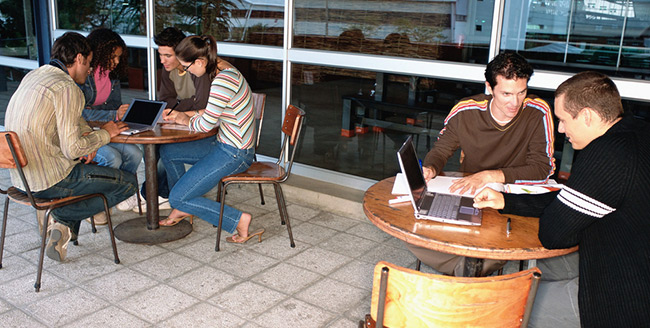
Alla Volodina – The last minute cram sessions before a final exam or the caffeine-induced all-nighters are popular study choices among students young and old. But are questionable study habits like these actually doing any good?
Theories on how people effectively learn range from the almost-ancient Piaget to the ultra-modern smart phone apps designed to help people grow bigger brains. The study of studying is a diverse and dynamic field, and there really isn’t one right answer or bit of advice to turn us all into Einsteins. But there is
Here are a few helpful tips for studying and learning in a more effective manner:
Give your learning some variety:
There are a lot of studies that suggest that learning in multiple ways can increase your ability to process and retain information. Instead of just reading from a text book or computer screen, try writing out what you’re reading in your own words. Or even better, if you happen to be keen on studying in groups, try teaching someone else what you’ve just learned. Teaching others is one of the most effective ways to learn and remember information. Remember doing presentations in high school? Teachers know that making students do presentations will help them retain the information that they are teaching the class.
Also, try changing between books and websites, and even documentary films or podcasts that are relevant to the topics you are trying to learn. Processing information visually and through audio is another great way to increase the likelihood that you are learning effectively.
Don’t multitask:
Doing too many things at once can have a negative impact on our ability to learn, and should be avoided. People always claim to be great at “multitasking” but science shows that the brain can really only focus on one thing at a time, but can switch between tasks very quickly. By focusing on only one subject or topic at a time the brain can absorb and process information very effectively. Try not to have too many distractions around you when studying. Television, ipods and cell phones might seem like harmless distractions, but focusing on them while also trying to learn is likely going to hinder the learning process. Try and turn off electronics for an hour or two so you can focus only on what you are trying to learn.
Don’t be afraid to ask for help!
Not being able to understand a particular subject can be very frustrating, and people often feel shy or embarrassed when asking others to help explain things. Don’t be afraid to admit that you don’t know something, hesitating and struggling will only slow down learning. Ask questions and look things up if you’re not sure that you completely understand what you are trying to learn. Keep a list, even if just in your head, of friends or family that have knowledge on different subjects and don’t waste any time contacting them when you need help.
Know what works for you:
Maybe the most important thing to remember when trying to learn more effectively is to know what works and what might not work when it comes to helping yourself learn. Maybe a favourite coffee shop or a table in the library is the place where you feel you learn best. Habits and rituals when learning like eating certain foods or enjoying a certain beverage can help stimulate your brain and improve the learning process. Music can also help, but be sure not to distract yourself. Knowing yourself and feeling comfortable is a key part of learning.
When all the studying is over, give yourself a pat on the back, and keep track of what kinds of things you think helped or hindered you. Seeking to improve yourself and your study habits can only help you as you strive to learn and retain more and more information for work, school or personal enjoyment.

 Here is an interesting article that Alla Volodina suggests to take a look at as it walks through the impacts of handwriting on your ability to learn.
Here is an interesting article that Alla Volodina suggests to take a look at as it walks through the impacts of handwriting on your ability to learn. 